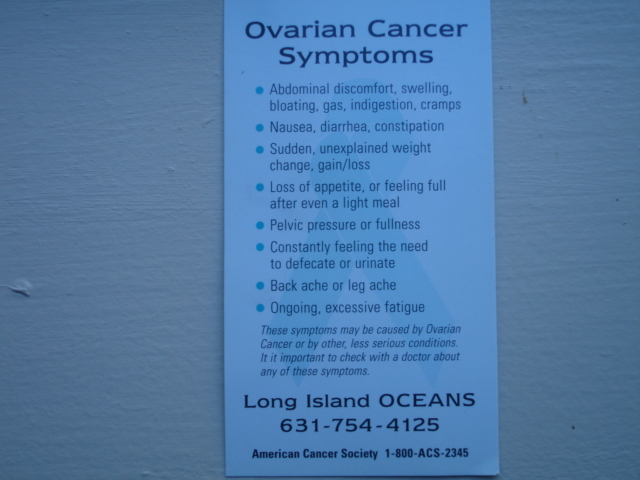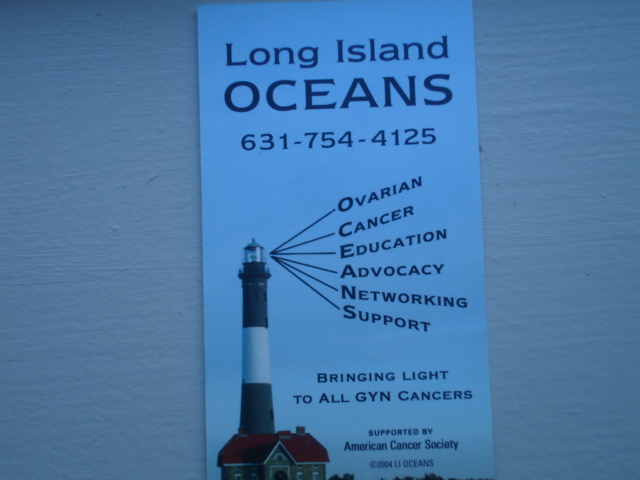
About Ovarian Cancer:
Ovarian Cancer is a non-discriminatory disease; as it cuts across social and racial strata with devastating ease, killing hundreds of thousands across the world every year. All females are at risk. Every seven minutes a woman is diagnosed with Gynecologic cancer.
Ovarian Cancer is the deadliest of all Gynecologic Cancers. Ovarian cancer ranks fifth in cancer deaths among women. According to the American Cancer Society; it will claim the lives of more than 16,000 women in America this year alone. Over 25,000 women will be newly diagnosed with Ovarian Cancer in 2006.
Because there is no test for the early detection of ovarian cancer, most of the ovarian cancer cases (75% to 80%) are diagnosed in the later advanced stages greatly limiting life expectancy.
Early detection increases the survival rate of early stage disease, though only 19% of all ovarian cancers are found in the early stage. The sooner ovarian cancer is found and treated, the better a woman's chance for survival.
What you need to know may save your life or the life of a loved one.
A pap test does not detect ovarian cancer
Ovarian Cancer can be treated if detected early.
Ovarian cancer may be difficult to diagnose because symptoms are easily confused with other diseases, often mimicking less fatal illnesses.
Potential signs, symptoms and risk factors of ovarian cancer:
Pelvic or abdominal pressure, pain or discomfort
Vague, yet persistent gastrointestinal upsets such as gas, nausea, and indigestion.
Unexplained changes in bowel habits, constipation or diarrhea
Ongoing unusual fatigue
Unexplained weight gain or loss
Frequency of urination and/or urgency of urination
Pelvic and/or abdominal swelling, bloating or feeling of fullness, even after a small meal.
Frequent & continuous back pain
Leg pain, persistent sciatica
Abnormal vaginal bleeding
Shortness of breath
Painful intercourse
Listen to your body! Do not ignore symptoms!
Potential Risk Factors:
Genetic predisposition- Presence of BRCA1 or BRCA 2 gene mutations
Personal or family history of breast, ovarian or colon cancer
Increasing age; with highest occurrence in women over 50, however;
Females of ALL ages are at risk.
Uninterrupted ovulation (having no pregnancies; infertility, low parity)
Speak with your Gynecologist have an annual recto vaginal pelvic exam.
Until there is a test, word of mouth is best.
Until there is a test, word of mouth is best.





























